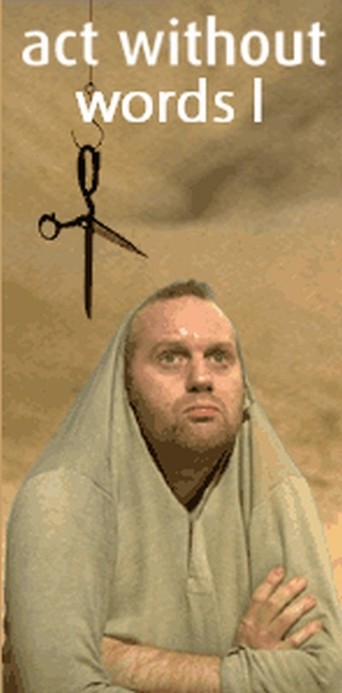

Good start, but then it gets ruined
... View MoreThe film was still a fun one that will make you laugh and have you leaving the theater feeling like you just stole something valuable and got away with it.
... View MoreOne of those movie experiences that is so good it makes you realize you've been grading everything else on a curve.
... View MoreWhile it doesn't offer any answers, it both thrills and makes you think.
... View MoreA man in a desert tries to escape or partake of water,shade or comforts but finds he's thwarted at every turn.Attempt a silent comedy with meaning is funny to a point but is so over blown and so archly meaningful that it completely falls down. I find it odd that the story construction is so off considering that Beckett loved silent comedy and slapstick which this apes but fails to replicate. I kind of wish I could find out what say Buster Keaton or Chaplin would have done with the same material. Perhaps this works on stage, but as it stand now, it's an okay film thanks to the weak script. .
... View MoreIn the 1950s, two disparate movements in British theatre swept aside the prevailing mode of polite, drawing room drama (eg Rattigan). One was the abrasive Angry Young Men movement; the other was the more philosophical, formalist 'universal' work of Samuel Beckett, and assorted Absurdists. Director Karel Reisz made his name with the former social-realist school, perhaps explaining the hames he offers of Beckett's mime in this film. The theme of the mime is commonplace enough - the frustrating pointlessness of existence; the sadism of unseen forces etc. - but the mime form gives some originality to these self-parodic themes, failing to reach the Buster Keaton level it aspires to.Reisz sets the desert scene on a soundstage, with absurdly bright paper sky and artificial sand, perhaps pointing to the artificiality of the piece, or of our lifelong struggles. He downplays the influence of silent comedy, making the hero a recognisable Everyman figure. This minimises the piece's humour, but also its pathos because of the manner of filming - theatrical space is not translated into film space; and the mime suffers. Reisz's recourse to hackneyed close-ups and editing undercuts any momentum in the piece, which depends on the body and its reactions. The various comic bits are obscured by obtrusive framing.
... View More